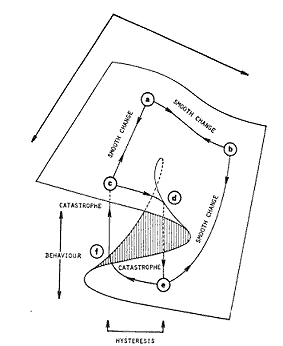Trait Substitution
See part I, Personality Traits as Potentia
See part II, Personality Traits as Natural
This part is really more of a personal reflection than a post about the intersection of psychology and natural philosophy. But it seems to fit topically, so here it is.
The Secrets of a Buccaneer-Scholar got me thinking of what I call trait substitution. When it comes to the task of living your life, it is rare that there is one and only one way to go about doing things. Not only are there many ways to live your life successfully, there are multiple ways to reach one and the same goal. Accordingly, having low-C does not mean that you cannot live a good life, just as low-g does not. If you have low-C and low-g, life will probably be rough. That sucks. [which brings up personality traits and social justice, but that is a topic for another time]
But in general, you can learn to build on your strengths instead of your weaknesses. Bach talked about having to learn how to do that in the interview I listened to. Basically, in his case he had to figure out how to use his smarts to compensate for a lack of discipline. This very much works the other way round as well. It is entirely possible to substitute hard work for smarts when it comes to school and work. I think there are at least a couple of ways of going about doing this, and one seems better than the other. [for me]
You can try to figure how to get the same result in a different way [the creative solution], or you can try to convert one trait directly into another[the brute force solution].
I suppose I think of personality traits as fungible, in the economic sense. You can convert one into another at some exchange rate, which may or may not be favorable to you in terms of time, effort, and results. However, like when you exchange money, there is some cost. It is possible to make up for a lack of discipline by using to-do lists, and trying to work diligently in time blocks, or finishing tasks a little at a time, or whatever time-management thing someone has come up with. These are all ways of trying to convert smarts into conscientiousness directly. This is the brute force solution, and it can definitely work. At the very least, it works well enough to keep a small army of self-help gurus employed. But, I think the typical improvement is probably small. You can probably get 5-10 percentage points of change out of things like this. Which, if you are looking for a little boost to help you get things done is probably just the ticket.
However, my personal experience as someone with low-C is trying to convert g into C makes me really unhappy. Trying to do things that way just stresses me out, and doesn't make the work go any faster. It is just too mentally exhausting to work against my nature in that way. When I took the OCEAN test I scored at the 2nd percentile for conscientiousness. My wife was a little more generous than I was and scored me at the 8th percentile, but we are pretty clearly talking low levels of conscientiousness here. A 5 point percentile point improvement would be only 13th at the best, and percentiles get wider in the tails, so it would probably be less than that. Basically I'm a lost cause.
So, I was really interested to listen to Bach, because his experience mirrors my own. I just can't do things the way most people do them. Trying to be organized and on the ball is really, really hard. It is especially annoying to me because I can perfectly well understand what needs to be done, it is just hard to do. Until I started learning about personality traits, this was mysterious to me. Now, it is clear what the problem is. I had to give up trying to be conscientious, and embrace my erratic work style.
My experience has been that I actually do better if I do things at the last minute, and get around to tasks when I remember them instead of trying to plan everything out. If it seems haphazard, that's because it is. But as long as the end result is acceptable, who cares? I actually find that really really good ideas percolate up into my mind as I procrastinate, and I continue to find success in life. This is the creative solution, finding a different way to get the end result. I just don't have to spend hours working on something to get a good result. I often find that I can bang out a rough draft of a technical report, and then drop it entirely for a day or so, and go back and revise it when I can get a fresh look at it. What matters is the final product, not the process of getting there. Which is probably confusing to some people, because it looks like I'm wasting time, but in the end I get as much, if not more done. It just comes out in these concentrated bursts.
I study much the same way. Taking classes at Holy Apostles, there are these suggested course outlines they give you in the syllabus: read this chapter this week, and watch this lecture, so forth. Trying to follow these basically set me up for failure. It would be easier if I actually had a lot of classes to physically go to, and I needed to break up the work. As it is, trying to read little bits and pieces just bores me, and I get distracted with work and more urgent day to day activities. What I have found to work better for me is to just cram it all together. I read the whole text book right away, and then I probably read all the class notes. I may or may not actually get around to watching all the videos until right before the final. Often, I write the term paper in about a 48-hour period the week before it is due. There is often a big lull period in the middle of the semester, which I often occupy by reading related philosophy texts or journal articles.
This process evolved, and it works pretty well. The time it completely failed me is when I took Logic. I probably still need to go back over that, because of the difficulty of the subject, it really does need a slow and steady approach to really master the material. I now have to do that again later. On the plus side, I picked up enough that I know how the material is organized, so I can probably move through it quickly the second time.
I cannot recommend this process. It is fraught with peril, and is probably unnecessary to someone with even low-mid levels of conscientiousness, but it works for me.



Comments ()